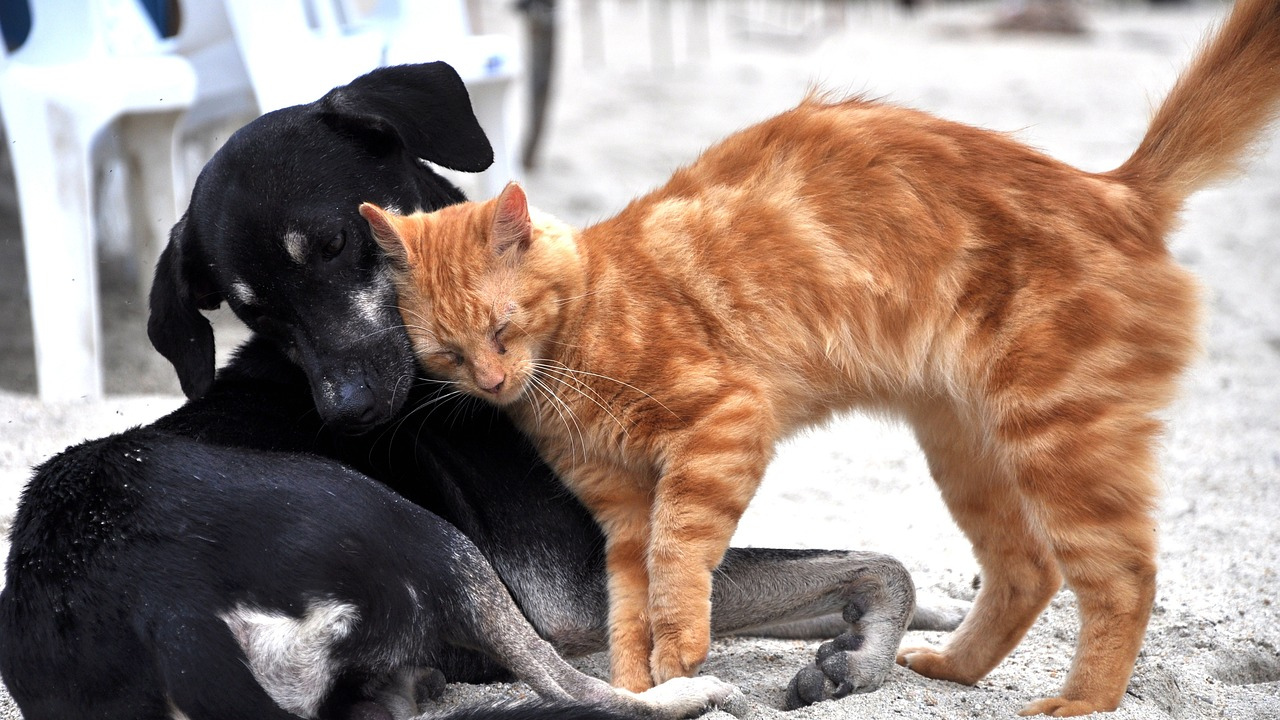Table of Contents
In the age-old debate of cats vs dogs, pet lovers around the world find themselves torn between two beloved companions. Both cats and dogs offer unique qualities and bring joy, companionship, and love to their owners’ lives. But which one is the best pet for you? In 2024, as the bond between humans and animals continues to strengthen, it’s essential to consider the factors that matter most when choosing a furry friend. This comprehensive comparison explores the key differences between cats and dogs, helping you make an informed decision based on your lifestyle, preferences, and personality.
Temperament and Personality: Cats vs Dogs
One of the most significant differences between cats and dogs lies in their temperament and personality. Cats are known for their independent nature, often enjoying alone time and preferring to explore the world at their own pace. They are affectionate and loving but on their terms, choosing when and how they want to interact with their human companions. Dogs, on the other hand, are pack animals with a strong sense of loyalty and companionship. They thrive on social interaction and enjoy being part of a family unit, often forming deep bonds with their owners and providing unwavering loyalty and companionship.
Care and Maintenance: Cats vs Dogs

When it comes to care and maintenance, cats are generally considered to be lower-maintenance pets compared to dogs. Cats are independent creatures that require minimal grooming and exercise, making them well-suited for individuals with busy lifestyles or limited space. They are fastidious groomers and often keep themselves clean, requiring only occasional brushing and nail trimming. Dogs, on the other hand, require more time and attention in terms of grooming, exercise, and training. Depending on the breed, dogs may need daily walks, regular grooming sessions, and obedience training to keep them happy, healthy, and well-behaved.
Exercise and Activity: Cats vs Dogs
Exercise and activity levels vary significantly between cats and dogs, reflecting their evolutionary backgrounds and natural instincts. Cats are nocturnal hunters by nature and are most active during the early morning and evening hours. They enjoy short bursts of play and exercise, such as chasing toys, climbing cat trees, and hunting imaginary prey. Dogs, on the other hand, are diurnal animals that require regular physical activity and mental stimulation to prevent boredom and behavior problems. They enjoy long walks, runs, and interactive play sessions with their owners, as well as activities such as agility training and obedience trials.
Socialization and Interaction: Cats vs Dogs
Cats and dogs have different socialization and interaction needs based on their species-specific behaviors and instincts. Cats are solitary hunters by nature and are generally less social than dogs. While they form strong bonds with their human companions, they may be less inclined to interact with unfamiliar people or animals. Dogs, on the other hand, are pack animals that thrive on social interaction and companionship. They enjoy spending time with their owners and other dogs, as well as meeting new people and exploring new environments. Socialization is essential for dogs to develop proper behavior and communication skills, making them well-suited for families and individuals seeking a sociable and outgoing pet.
Lifespan and Longevity: Cats vs Dogs
The lifespan of cats and dogs varies depending on factors such as breed, genetics, and overall health. On average, cats tend to live longer than dogs, with some cats reaching their late teens or even early twenties with proper care and nutrition. Dogs, on the other hand, have a shorter lifespan, with most breeds living anywhere from 10 to 15 years on average. While the lifespan of both cats and dogs ultimately depends on individual factors, it’s essential to consider the long-term commitment required when bringing a pet into your home.
Allergies and Sensitivities: Cats vs Dogs
Allergies and sensitivities to pet dander and saliva are common concerns for prospective pet owners, especially those with preexisting respiratory conditions or allergies. While both cats and dogs produce allergenic proteins that can trigger allergic reactions in sensitive individuals, some people may be more sensitive to one species over the other.
Cats are often associated with more severe allergies due to the presence of a protein called Fel d 1 in their saliva, urine, and dander. Dogs, on the other hand, produce a different allergenic protein called Can f 1, which can also trigger allergic reactions in susceptible individuals. It’s essential to consider potential allergy risks and sensitivities when choosing a pet and to take steps to manage and minimize exposure to allergens, such as regular grooming, cleaning, and air filtration.
Travel and Mobility
For individuals who lead active lifestyles or travel frequently, the ability to bring a pet along on adventures or accommodate their pet’s needs while away from home is an important consideration. Cats are generally more independent and adaptable to changes in routine and environment compared to dogs. While cats can be left alone for short periods with access to food, water, and a clean litter box, they may also be more inclined to roam and explore their surroundings if given the opportunity. Dogs, on the other hand, require more hands-on care and attention, including regular walks, bathroom breaks, and social interaction. Traveling with a dog may require additional planning and accommodations, such as pet-friendly accommodations, transportation, and outdoor activities.
Cost and Expenses
The cost of owning a pet is another important consideration for prospective pet owners, as it includes expenses such as food, veterinary care, grooming, and supplies. While both cats and dogs require financial investment to provide for their basic needs, there are differences in the overall cost of ownership between the two species. Cats are generally considered to be more economical pets compared to dogs, as they require less food, grooming, and veterinary care on average. However, it’s essential to budget for unexpected expenses, such as emergency veterinary care or specialized medical treatments, regardless of the type of pet you choose.
Conclusion
In conclusion, the decision to choose a cat or a dog as a pet ultimately depends on your lifestyle, preferences, and personality. Both cats and dogs offer unique qualities and bring joy, companionship, and love to their owners’ lives in their way. Whether you’re drawn to the independent nature of cats or the loyal companionship of dogs, it’s essential to consider factors such as temperament, care requirements, exercise needs, and long-term commitment when making your decision. By understanding the differences between cats and dogs and evaluating your own lifestyle and preferences, you can choose the perfect pet to enrich your life and bring happiness to your home in 2024 and beyond.







